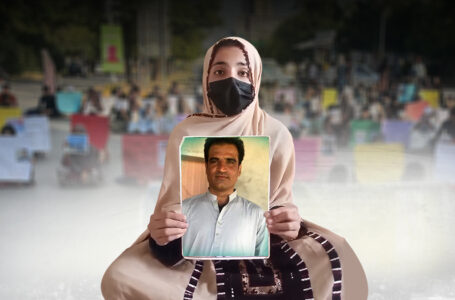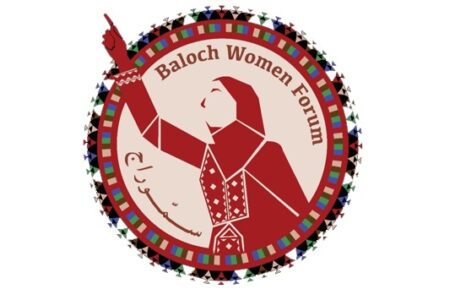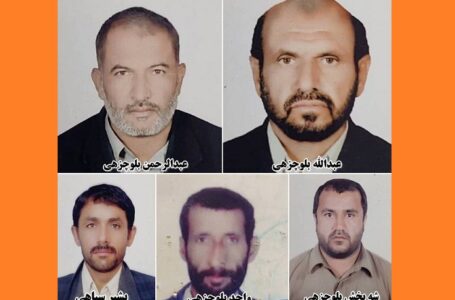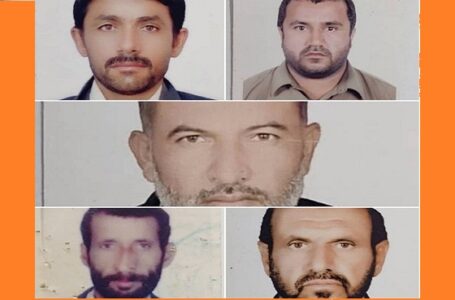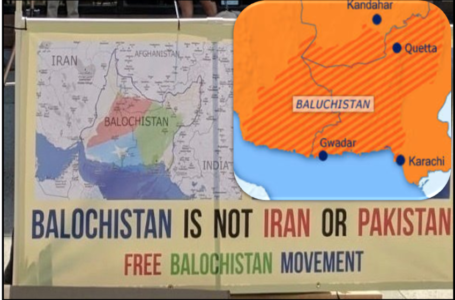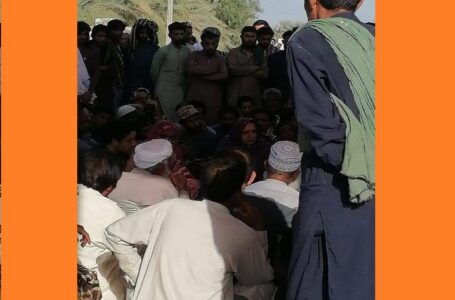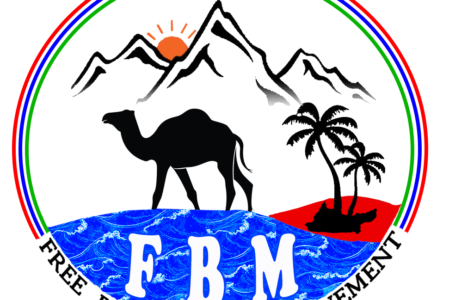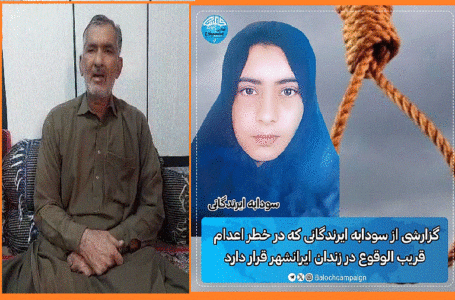Family of Abducted Baloch Activist Demands Justice at Press Conference in Awaran
Communism, Nationalism and Baloch Liberation Movement
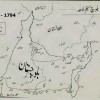
By Qaazi Baloch
Communism was theorised by Karl Marx and his friend Friedrich Engels. Karl Marx was born in a Jewish family on May 5th 1818 in Germany. He was interested in History, Jurisprudence and Philosophy. In his early days of life, he was the student of LAW, in a domestic college. Later on, he has successfully completed his PhD in Philosophy department in Germany. Because of his revolutionary thoughts, he was exiled from Germany. Since 1849, he had spent the rest of his life in exile in Britain. The last year of his life was 1883. He with his friend achieved the credit of “Communist Manifesto” and “Das Capital”.
Communism is based on six basic following economic and political principles developed by Karl Marx.
1: Material interpretation of the History: Unlike Haggle Marx believes history moves through matters, not ideas. It is justified that in the basic age of human being, known as primitive communism, men enjoyed hunting and passed their days of life where means of production were Stone, Wood and etc, and the products were equally distributed among the people. With the time passed, men left the primitive age when matter changed its shape. As a result, other ages of history emerged, dubbed as Slavery, Feudalism, and Capitalism and so on.
2: Class Struggle: Marx argued that every production evolved around the economic classes which generally is divided into two Classes namely privileged and exploited class, or Worker and Capitalist class. The interests of the two classes are antagonistic to each other. According to Marx such clashes always result in the victory of workers or exploited class upon capitalists.
3: The Theory of Surplus Values: The differences between the sale price and the cost of production, is called Surplus-value. For instance, a commodity is made in an industry which’s the cost of production is 20 rupees but it is sold at the price of 50. Thus, 30 rupees are called surplus value. These are appropriated by Capitalist instead of workers; it is an injustice to the workers, believed by Marx. Due to injustice workers are incapable to avail the value-added goods, produced by them.
4: Inevitability of Revolution: Marx strongly believes that Capitalism in itself has certain weaknesses which lead toward the destruction of the system. The capitalist class is motivated by the desire of profit, which compels them to pay the lowest price to the worker. As a result worker revolt against the privileged class.
5: Proletarian Dictatorship: A writer quits that “Marx declares that the victorious workers must establish a dictatorship during the transitional period to put their programs into practice and stand of (destroy completely) the counter-revolutionary and the capitalists who would try to capture political power again. During this period the whole economic system will be transferred into a socialist system.”
6: Stateless and Classless society: In the post-revolutionary era there would not, nor any class neither any state, exist in the society. Marx believes that State is merely the instrument of class oppression. In this stateless society, certain associations perform the functions which are required in a society.
Above mentioned basic principles of Communism were (with certain modifications) implemented in Russia after the famous Russian Revolution of 1917 (Bolshevik Revolution) led by Lenin. This revolution including communism became an ideology for all the exploited nations in the world. So many nations also revolted against the dominant class.
The ideology further expanded when the Soviet Union became one of the superpowers after the catastrophic Second World War. In the Cold War period, every hegemonic power tried to expand its ideas and counter the next by proxy wars. Guerrillas, in different countries, started fighting against the governments of opposite ideology, supported by either of the powers.
In Southeast Asia, Baloch have also been influenced by the Russian Revolution, because communists had the control over Afghanistan a neighbouring nation of Balochistan. Baloch, on the basis of communism ideology, also started revolting against the Pakistani state, as the other occupied nations were revolting.
With the passage of time, in 1989 Soviet forces withdrew from Afghanistan and the Soviet Union disintegrated in 1991. The world became unipolar and the United States became the only hegemonic power since 1991. No doubt, those who on the basis of communism ideology fought against capitalists were supported, economically, politically, socially and diplomatically by the Soviet Union. After the disintegration of Soviet Union, the all National Liberation movements (supported by the Soviet Union) were crashed by Capitalist Bloc.
The powerful world left the communist ideology after the disintegration of Soviet Union but unfortunately, Baloch could not understand world politics by not leaving this ideology. As a result, the western Bloc especially the European powers and the United States of America is not supporting the Baloch Liberation movement. Secondly, the Baloch society has suffered division and disunity because of this ideology as well. Communism just supports the lower class of the society, but in Baloch society, they are very less in number to the extent of almost non-existence. Instead of slogans patriotism Baloch have developed communist slogans against its own people.
As a result, Baloch liberation movement lost their support especially upper and middle class of the Baloch society who took part in the politics of Pakistan from the platforms of National Party, Balochistan National Party (Awami) Balochistan National Party (Mengal) and other so-called Parliamentary and Nationalist Parties.
Beside this communist organisational structured has been adopted by some pro-liberation organisations. The Communist organisational structure is defined that, a chairperson is elected as the head of an organisation and some are appointed as central committee members, Zone members, lastly the members of Unit. The communist organisational constitution demands to make presence all members of Zone, Unit or Central Committee Members (CC Members) in its meetings.
It is analysed that communist organisational structure has harmed the Baloch liberation movement. Adopting this organisational structure means Baloch are not able enough to create its own organisational structure in accordance with local and ground politics of Baloch society. However, the organisational structure was not modified rather it has been directly pasted which is not relevant in accordance with Baloch Society. Several senior organisational members were abducted by the State intelligence, because of the same structure as well.
If in this situation the organisation holds a meeting in any city of Balochistan (all cities of Balochistan are controlled by the intelligence of State and Army), so according to this organisational constitution all members should make their presence which is harmful to the members of the organisation. But unfortunately, some organisations still have the same organisational structure. Communist Party structure was formed by Lenin in order to bring a revolution against the Tsarist government. Hence, it requires the show of quantity instead of the demonstration of intellect and wisdom.
The Baloch conflict with Iran and Pakistan is not a revolution rather it is a national liberation movement to regain the independence of United Balochistan. The word ‘revolution’ means “a change in the way a country is governed, usually to a different political system and often using violence or war”. In simple words revolution, means to change the political setup within the State and political setup is replaced by another setup.
Since the emergence of the Soviet Union, most of the liberation movements were also literally influenced by communist literature. Like other nations Baloch also studied and later on adopted the same literature in their society and Liberation Movement. It has continued since 2010. After this, the Baloch have changed their Political setup of the Liberation Movement. The credit goes to Baloch patriot leader Hyrbyair Marri who has changed the perspective of Baloch liberation movement from Socialism or Communism to Nationalism.
Nationalism is defined that, in order to understand the Nationalism it is necessary to know what a Nation itself is. A nation is a group of people who share a common language, culture, history, territory etc. Further, the member of a nation considers themselves only associated with that nation, as a member of one nation and have the political power or try to gain political power in a specific region. Nationalism is a sense of feeling of loving the people, culture, history and territory of that nation. Baloch after developing the nationalist perspective can achieve the political and moral support of the world. Baloch were not supported while they have communist structure. Western Bloc is not interested in a socialist state in this region which could harm the Western interest in the Indian Ocean because communism is the death of Western Bloc.
To sum up it pertinent to remember that without the support of, especially western powers, the international community the Baloch cannot change the Southeast Asian region. Thus, it is necessary to prove that Baloch will not harm the western interests but Baloch and the world can collectively maintain the peace and security especially in the South-eastern Asian. Communism or Socialism are not the solutions of Baloch issue. Unfortunately, some people are not ready to change their ideology from communism to patriotism.
No doubt, Nawab Khair Baksh Marri and other Baloch Leaders on the basis of communist ideology fought for independent of Balochistan but that time ground realities were supporting the Baloch and the communists were in control of half of the world and had hegemony in the world. In the current world politics, the ideology of communism cannot solve the Baloch issues. Instead of communists, socialists and any other is the Baloch should call themselves patriots follow patriotism which may unite the Baloch again because united we can easily achieve our goal – independent Balochistan. Divided we will lose and the enemy will win.

